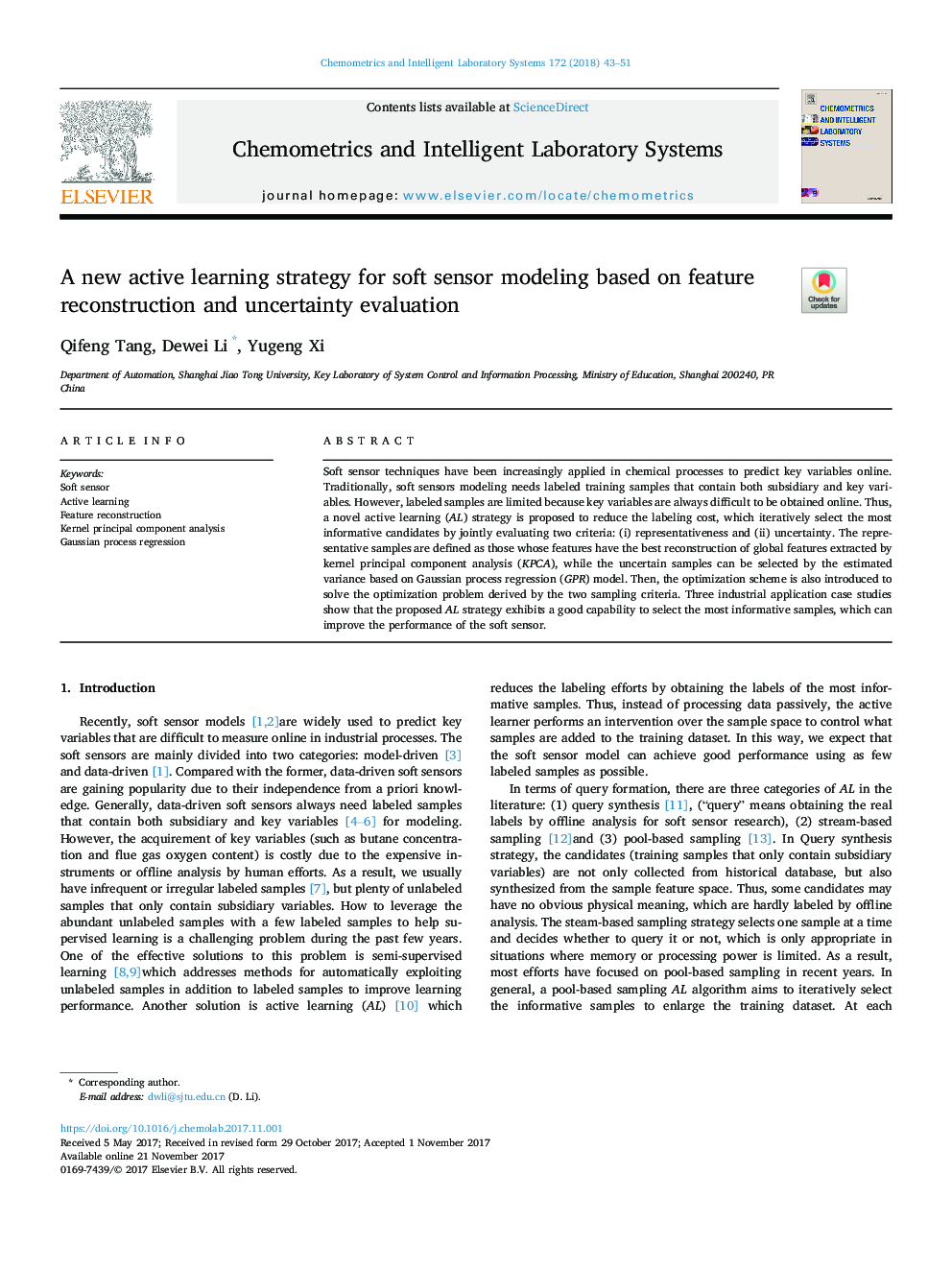| Article ID | Journal | Published Year | Pages | File Type |
|---|---|---|---|---|
| 7562282 | Chemometrics and Intelligent Laboratory Systems | 2018 | 9 Pages |
Abstract
Soft sensor techniques have been increasingly applied in chemical processes to predict key variables online. Traditionally, soft sensors modeling needs labeled training samples that contain both subsidiary and key variables. However, labeled samples are limited because key variables are always difficult to be obtained online. Thus, a novel active learning (AL) strategy is proposed to reduce the labeling cost, which iteratively select the most informative candidates by jointly evaluating two criteria: (i) representativeness and (ii) uncertainty. The representative samples are defined as those whose features have the best reconstruction of global features extracted by kernel principal component analysis (KPCA), while the uncertain samples can be selected by the estimated variance based on Gaussian process regression (GPR) model. Then, the optimization scheme is also introduced to solve the optimization problem derived by the two sampling criteria. Three industrial application case studies show that the proposed AL strategy exhibits a good capability to select the most informative samples, which can improve the performance of the soft sensor.
Keywords
Related Topics
Physical Sciences and Engineering
Chemistry
Analytical Chemistry
Authors
Qifeng Tang, Dewei Li, Yugeng Xi,
